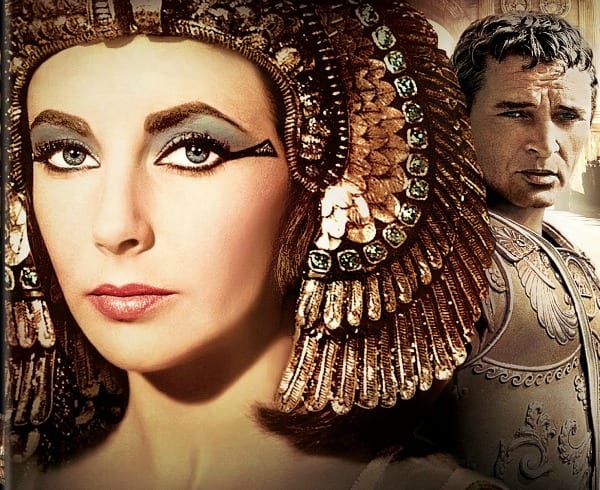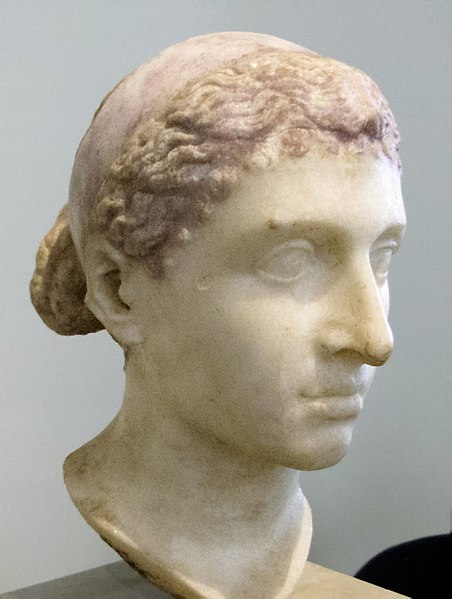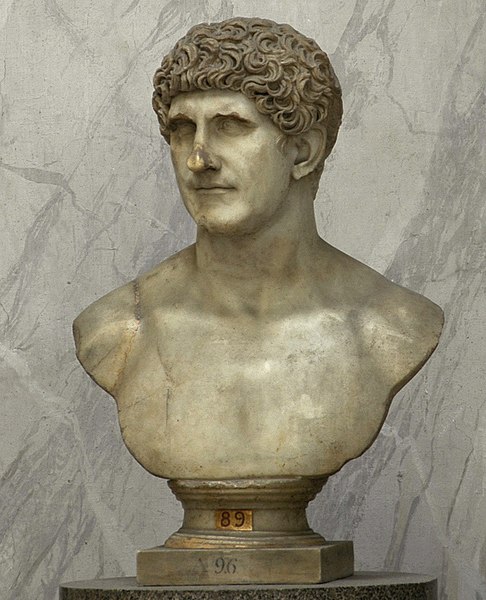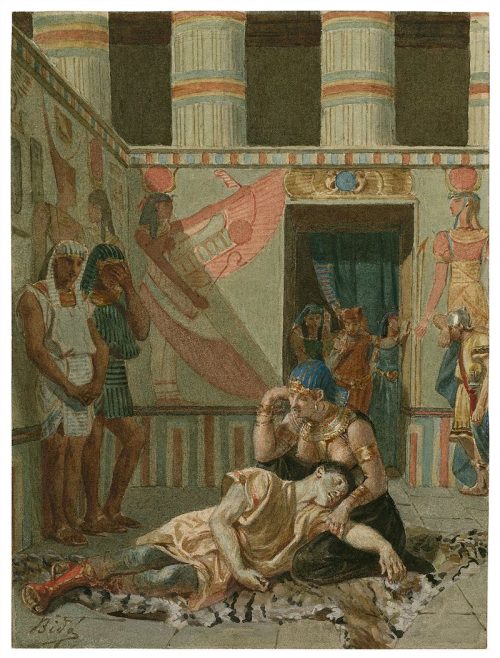Anthony and Cleopatra: an enduring love story
Anthony and Cleopatra: an enduring love story
Anthony and Cleopatra: an enduring love story
-
Hannah
-
Hannah

What sets this story apart from those of other great lovers, like Romeo and Juliet, is that at its heart lies truth: Anthony and Cleopatra did exist, and they did love each other with a burning, consuming passion. Yet their truth has morphed into legend, as so many imaginations through the centuries have been captured by their story and inspired to weave fiction from fact.
So what are the facts, as a starting point?
Cleopatra (69–30 BC) VII was the last ruler of Egypt, before the country was incorporated into the Roman Empire. She was proud of her Egyptian heritage, seeing herself as the reincarnation of an Egyptian goddess. Yet she was not Egyptian through and through: she was of a Greek family who had ruled Egypt since the time of Alexander the Great.
Cleopatra was helped to become sole ruler of Egypt by the Roman dictator Julius Caesar, whose mistress she become, bearing his son, Ptolemy Caesar, nine months after their first secret meeting. When Caesar was assassinated, she turned her attention to his right-hand man, Marcus Antonius (83–30 BC), who along with two other men had assumed the dictatorship in Rome. Their political aspirations were well-matched, and with Mark Anthony placed in charge of Egypt, he co-ruled with Cleopatra in the pursuit of great power and glory.

The Berlin Cleopatra, mid-1st century BC
Anthony was married four times, latterly to Octavia, the sister of the future Roman Emperor Augustus. Marriage then for leaders was about political alliance, not love; but it was love that brought Anthony to Cleopatra’s side time and again, and she bore him three children. Soon, Anthony and Augustus could no longer see eye to eye, and civil war erupted, which culminated in Augustus declaring war on Cleopatra and declaring Anthony to be a traitor. At the Battle of Actium in the Ionian Sea, Augustus defeated Anthony’s forces, and he fled to Egypt and Cleopatra.

Mark Antony, c. 69 AD
Ruthless ambition and pride had united Anthony and Cleopatra thus far, but now came the moment in history that made this love affair so memorable: the two committed suicide. First Anthony, knowing that he could not escape Augustus’s reach and believing that Cleopatra had already taken her life, stabbed himself in the stomach. As he lay awaiting death, however, he learned that his love was alive, and he was brought to her – to die in her arms. After the burial rites, Cleopatra then chose to join him in death, through the poison of an asp which she provoked into biting her. They are believed to lie together still in a mausoleum near the temple of Taposiris Magna, southwest of Alexandria.
Quite a story, don’t you think? No wonder it has inspired so many creative minds over the years, some sticking to the facts as recorded at the time, but most taking poetic licence to represent the compelling and epic love of these formidable figureheads. Here are just two of the many depictions of Anthony and Cleopatra that have brought so much colour and emotion to our cultural landscapes.
Shakespeare’s play
William Shakespeare wrote a tragedy based on the famous lovers, called Antony and Cleopatra and set in Rome and Egypt. It was first performed at the Globe Theatre in the early 17th century. The relationship between the two protagonists underlies all the action, and is based on an angst-ridden combination of passion and manipulation. Power and fame are of absolute importance – and invincibility, which is why, to Shakespeare’s mind, Antony and Cleopatra take their own lives, ensuring that their love will become legendary and that they will be remembered as heroic, noble and sacrificing. Not, in fact, a tragic ending, but one infused with a mastery of one’s fate. So says Cleopatra upon Anthony’s death:
We’ll bury him, and then, what’s brave, what’s noble,
Let’s do ’t after the high Roman fashion
And make death proud to take us.

Act IV, Scene 15: Cleopatra holds Antony as he dies
Mankiewicz’s movie
The film Cleopatra, released in 1963, has gone down in history as being absolutely epic, the most expensive and ambitious movie created to that point (it cost $44 million to make, and despite being the highest-grossing film at the box office that year, it did not make a profit and plunged 20th Century-Fox into a financial quagmire). It’s a sumptuous, grand, dramatic biography of Cleopatra’s life, and most especially her love affairs with Caesar and Anthony.
It is the relationship with Anthony that really stands out, however, for the chemistry between the actors is so fiery. Here’s a snippet of one of their scenes:
Cleopatra: You come before me as a suppliant.
Antony: If you choose to regard me as such.
Cleopatra: I do. You will therefore assume the position of a suppliant before this throne. You will kneel.
Antony: I will what?
Cleopatra: On your knees!
Antony: You dare ask the Proconsul of the Roman Empire?
Cleopatra: I asked it of Julius Caesar. I demand it of you!
The spark so evident on screen was compelling because it was burning brightly off screen too. While filming, Elizabeth Taylor and Richard Burton engaged in an adulterous affair that created an almighty scandal; as Vanity Fair put it, “Never before had celebrity scandal pushed so far into global consciousness”. One wonders what the real Cleopatra would have made of that. I imagine, somehow, she would have been undaunted, her head held high.

Promotional poster for Cleopatra, 1963
What do you make of Anthony and Cleopatra’s love story? Is it a story of love, in fact, to inspire us, or one of power plays and possession and lust? I would love to hear your thoughts.
Photo credit: 1) film poster; 2) Louis le Grand, source; 3) Ancientrome.ru, source; 4) Alexandre Bida, source.